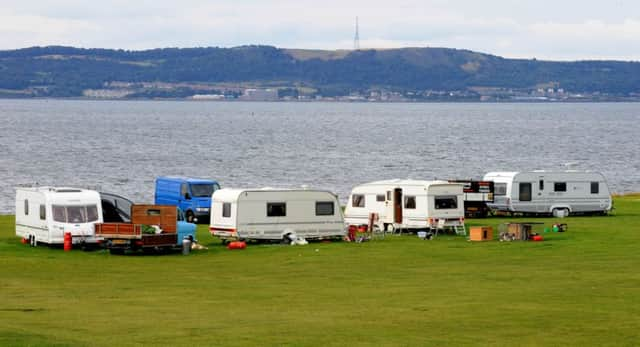Gypsies endure ‘Third World’ health care


The British/Irish Parliamentary Assembly (Bipa) found GPs had closed their books to travellers in Scotland and expectant mothers had been unable to access maternity services in emergencies.
Campaigners have also hit out at the treatment of travellers in Scotland as opposed to England, where councils have a legal duty to provide sites. Where councils do provide pitches in Scotland, many are on brownfield sites, reinforcing travellers’ sense of being marginalised.
Advertisement
Hide AdAdvertisement
Hide AdThe Bipa report states: “This inequality of access and outcomes and patchy provision is unacceptable and must be addressed.” It goes on to recommend agreement to establish dedicated centres, helping address fears that healthcare providers, which act first to provide better care for travellers, could be overwhelmed.
The report also revealed suicide rates among traveller men were up to seven times higher than average.
Activist Joseph Jones, of the Gypsy Council, said: “Gypsies being turned away from GPs and ambulances refusing to come on sites is something we are well aware of.
“Gypsies have a life expectancy of just 55 and those who are pregnant are also most likely to suffer a miscarriage. It’s like gypsies in the UK are living in the Third World.
“Gypsies do have it easier in England than in some parts of Scotland where many encounter severe discrimination but gypsies are treated unfairly all over.”
Michelle Lloyd at the Minority Ethnic Carers of People Project, which supports carers in the traveller community in Scotland, said: “The issues raised in this report were also raised in a Scottish Government report back in 2011 but nothing has been done. Instead there has been a decrease in the number of local authority sites opened up to gypsies while the population has steadily grown.”
The Scottish Government has committed to greater transparency when assessing need, with clear consultation, and Bipa said other governments should follow this lead. But Siobhan Reardon, Amnesty International’s Scotland director, said: “Scottish gypsy travellers are marginalised and discriminated against on a daily basis in Scotland. This needs addressed.”
Latest estimates put the number of travellers/gypsies in Scotland at around 8,000.